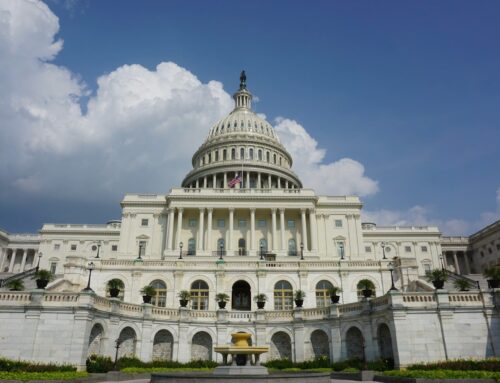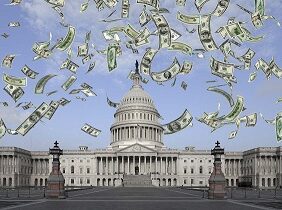This month marked the 50th anniversary of the enactment of the Congressional Budget and Impoundment Control Act of 1974. This legislation was a significant milestone in the history of American fiscal policy. On July 12, 1974, President Richard Nixon’s veto was overridden, and the act became law. The legislation was meant to re-establish Congressional control over the budget process, which had been increasingly dominated by the executive branch. While initially promising, the results in more recent decades have been mixed.
Key features of the act include the creation of the Congressional Budget Office (CBO) and the House and Senate Budget Committees, as well as the establishment of the budget process and the elimination of the presidential power of impoundment. The act was a response to President Nixon’s frequent impoundment or withholding of funds appropriated by Congress, which was seen as an infringement on the legislative power of the purse.
While portions of the legislation have been a success, other aspects have fallen short. The budget reconciliation process, initially a minor part of the Act, has become a tool for bypassing Senate filibusters, often leading to policies that increase deficits rather than reduce them. The requirement for Congress to set overall budget priorities has often been undermined by political posturing and a lack of fiscal discipline, as the House and Senate budget committees frequently fail to use the budget resolution to exercise their role in setting fiscal policy. This has led to a situation where the intended control and responsibility over the budget have not been realized, as the process remains mired in partisan interests and inefficiencies. Since enacting the legislation, Congress has passed a budget through regular order before the end of the fiscal year only four times.
As we mark the 50th anniversary of the Act, the House Budget Committee, through its Budget Process Reform Task Force, has released discussion drafts for reforms to strengthen the congressional budget process. The Task Force is seeking input from experts and stakeholders to gather solutions for improving the federal budget process. They are also looking for ideas for managing resources, preventing budget gimmicks, reducing the deficit, achieving long-term stability, and accounting for regulatory costs.
We’re not going to get through all of that in one humble Wastebasket.
Let’s start with the Task Force’s proposed amendments to the Congressional Budget and Impoundment Control Act:
- The first of three would introduce a point of order in the House of Representatives that would prevent the consideration of any spending bill or continuing resolution to extend funding that exceeds the allocated outlays as specified by a concurrent budget resolution for a fiscal year.
- The second would require any bill or joint resolution introduced in the House of Representatives to include a detailed statement regarding emergency spending explaining how the designated funds are used for unanticipated emergencies.
- The third would prohibit the House of Representatives from considering any full fiscal year spending bill or joint resolution that includes provisions proposing changes to mandatory programs. This is meant to prevent the use of “CHIMPs” (Changes in Mandatory Programs), which are often used to offset new increased discretionary spending by reducing mandatory budget authority to shift taxpayer dollars without breaching spending caps.
In general, these are all worthwhile reforms. Besides adding to the national debt, passing spending bills that exceed the allocated outlays in the budget resolution undermines fiscal discipline and can trigger procedural points of order, complicating the legislative process. Emergency spending designations are often misused to fund non-emergency projects, allowing lawmakers to bypass budgetary constraints and increase federal spending without proper oversight. TCS has characterized CHIMPs as “fake ‘paper savings’ to mask increased spending elsewhere in the federal budget” and “phantom spending cuts to pay for real spending increases.”
To these, we would add a few other suggestions for the Task Force to consider:
- Create Bipartisan Fiscal Commission: Create a dedicated body focused on stabilizing the national debt and narrowing the gap between revenue and spending, identify waste, evaluate potential reforms, and propose solutions.
- Requirements to Pass a Budget: Prohibit Congress from making policy decisions that affect the budget until a budget resolution has been adopted.
- Eliminate Debt Ceiling: Remove the debt ceiling as it no longer serves as a tool for fiscal discipline and at some point the fiscal brinksmanship in debt ceiling fights is going to result in a breach and fiscal calamity.
- Privileged Consideration of Bipartisan, Deficit-Reducing Budgets: Create mechanisms for expedited consideration of bipartisan budget proposals that reduce the deficit, especially if the regular budget process fails.
- Automatic Continuing Resolutions: Implement automatic CRs to prevent wasteful government shutdowns and provide incentives for lawmakers to reach budget agreements.
The House Budget Committee is to be congratulated for their work on these issues, but time is short to get these provisions enacted into law.











Get Social